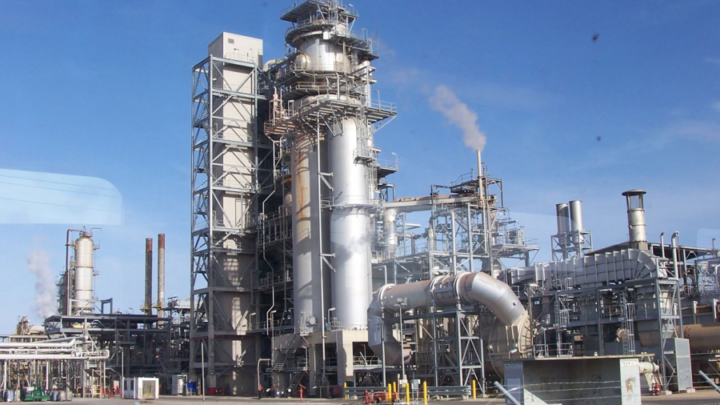The Organization of Petroleum Exporting Countries (OPEC) has offered a promising outlook for Nigeria’s oil sector, projecting the establishment of small modular refineries in the medium term. These refineries are expected to have a daily processing capacity of 20,000 barrels per day (bpd) each, further contributing to the nation’s refining capacity.
This optimistic projection was disclosed in OPEC’s recently launched World Oil Outlook, an authoritative document that provides insights into the global oil industry’s future trends. The report highlights the medium-term expansion of distillation capacity in Africa, estimating an addition of 1.2 million barrels per day (mb/d) for the continent. A substantial portion of this projected increase is attributed to the Dangote refinery in Nigeria, which alone accounts for 650 thousand bpd of much-needed refining capacity expansion within the country.
The Dangote refinery, which was officially inaugurated in May 2023, is set to commence commercial operations this month, focusing initially on the production of diesel and aviation fuel. It is scheduled to begin petrol refining in November 2023. This monumental project is expected to play a pivotal role in reducing Nigeria’s dependence on imported refined petroleum products.

However, alongside these positive developments, the OPEC report recognizes some of the significant challenges that Nigeria faces in its quest to enhance its domestic refining capabilities. The foremost hurdles include funding constraints for modular refineries and the increasing incidence of sabotage attacks on oil pipelines, as well as oil theft. These issues have consistently disrupted smooth operations and hindered progress in the Nigerian refining sector.
Addressing these challenges is of paramount importance to the country, as a self-reliant and efficient refining industry can bring about significant benefits. One solution proposed by industry experts, including Momoh Oyarekhua, the Chairman of the Crude Oil Refineries Association of Nigeria (CORAN), is to provide much-needed support to modular refineries. Oyarekhua has emphasized that bolstering these refineries can lead to more affordable fuel for Nigerians by eliminating several associated costs that currently burden the nation.
A key aspect of these cost reductions lies in changing the way crude oil procurement is handled. Oyarekhua has pointed out the extensive expenses linked to exporting crude oil for refining abroad and subsequently importing the refined products. This process involves costs related to clearing refined petroleum products at the terminal, port charges, and the involvement of middlemen in transporting products from Lome, Togo, to Nigeria. By addressing these issues and promoting the growth of modular refineries, Nigeria can alleviate some of the financial burdens associated with its oil industry.
Notably, it’s essential to consider the recent policy shift in Nigeria’s fuel importation landscape. As of last week, the Group Chief Executive Officer of the Nigerian National Petroleum Company (NNPC) Limited, Mele Kyari, announced that the NNPC had returned to being the sole importer of fuel in the country. This move marked a departure from the previous approach that encouraged private marketers to import fuel. Kyari attributed this policy reversal to the scarcity of foreign exchange in the country, which had effectively hampered the ability of private marketers to import fuel, despite holding the necessary licenses.
In light of this, the emphasis on supporting modular refineries takes on greater significance. The cost savings associated with domestically processed crude oil and refined products can not only mitigate the challenges posed by foreign exchange constraints but also help stabilize the domestic fuel market.
Chairman Oyarekhua further underlined the need for modular refineries to purchase crude oil in Naira, the Nigerian currency, aligning with their income generated in Naira from selling products within the Nigerian domestic market. This approach is aimed at reducing the burden on the foreign exchange market and promoting a more sustainable economic model.
To illustrate the significance of this approach, Oyarekhua presented a scenario involving 40 modular refineries, each with a daily capacity of 10,000 barrels. In this scenario, these refineries would typically need to purchase crude oil in USD, leading to a significant monthly expenditure. By transitioning to a Naira-based procurement model, the industry can alleviate the financial strain associated with foreign exchange fluctuations, ensuring that feedstock procurement aligns with the country’s economic interests and overall stability.
In conclusion, Nigeria’s efforts to enhance its refining capacity and establish small modular refineries represent a significant step toward greater self-sufficiency in the oil and gas sector. The positive outlook provided by OPEC’s World Oil Outlook, coupled with the imperative need to address ongoing challenges, highlights the potential for a brighter future in Nigeria’s oil industry. By supporting modular refineries and implementing currency strategies that promote economic stability, Nigeria can work toward a more resilient and sustainable energy landscape, benefitting both the industry and the country’s citizens through improved fuel affordability and accessibility.
Support InfoStride News' Credible Journalism: Only credible journalism can guarantee a fair, accountable and transparent society, including democracy and government. It involves a lot of efforts and money. We need your support. Click here to Donate
